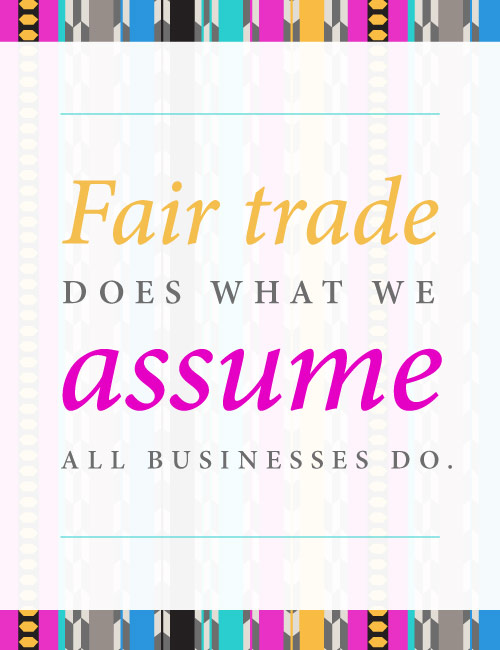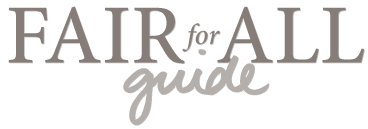Over the last few months I’ve been sharing some of the reasons why I support fair trade. One principle of fair trade that is very important to me is the prohibition of forced and child labor.
Millions of people worldwide are forced to work against their will and without proper pay. This is called human trafficking, also known as modern-day slavery. Trafficking is present in a variety of sectors: agriculture, manufacturing, domestic servitude, the sex industry. Some estimates put the number of enslaved people worldwide at 30 million.
One of the first avenues through which I learned about human trafficking was International Justice Mission. Their accounts of entire families being enslaved in brick kilns for years have stuck with me since I first heard them.
It boggles me that any form of slavery still exists today. I think a lot of people are unaware of human trafficking, and if they are aware, they assume that businesses make sure they don’t have slaves working for them. However, most businesses do not do the rigorous monitoring that is required to identify and eliminate forced labor from their supply chains.

This is another case where fair trade is doing what we would expect all businesses to do. In fair trade, all workers are working voluntarily and are being paid fairly. Beyond that, fair trade stipulates that workers should be free from physical and verbal abuse, harassment and discrimination. (My reference point for fair trade standards is the Fair Trade Federation’s principles. Other certifications have similar standards that may be phrased differently.)
Fair trade also puts a special emphasis on the rights of children. While many children worldwide work to help support their families, fair trade requires that children’s work not interfere with their safety, education or need to play. Fair trade producers must disclose when children are involved in production and must adhere to the UN Convention on the Rights of the Child.
Having been part of an anti-trafficking organization for several years, I’ve heard many accounts from former trafficking victims about the hopelessness they felt while being trafficked. Fair trade offers an alternative of hope—a way to provide for one’s family in an environment of safety and respect. Fair trade doesn’t just prohibit slavery; it provides economic opportunities so people are less at-risk for becoming enslaved.
To learn more about human trafficking, I recommend checking out International Justice Mission and the Not For Sale Campaign.

This is a great resource. I have shared this on pinterest.